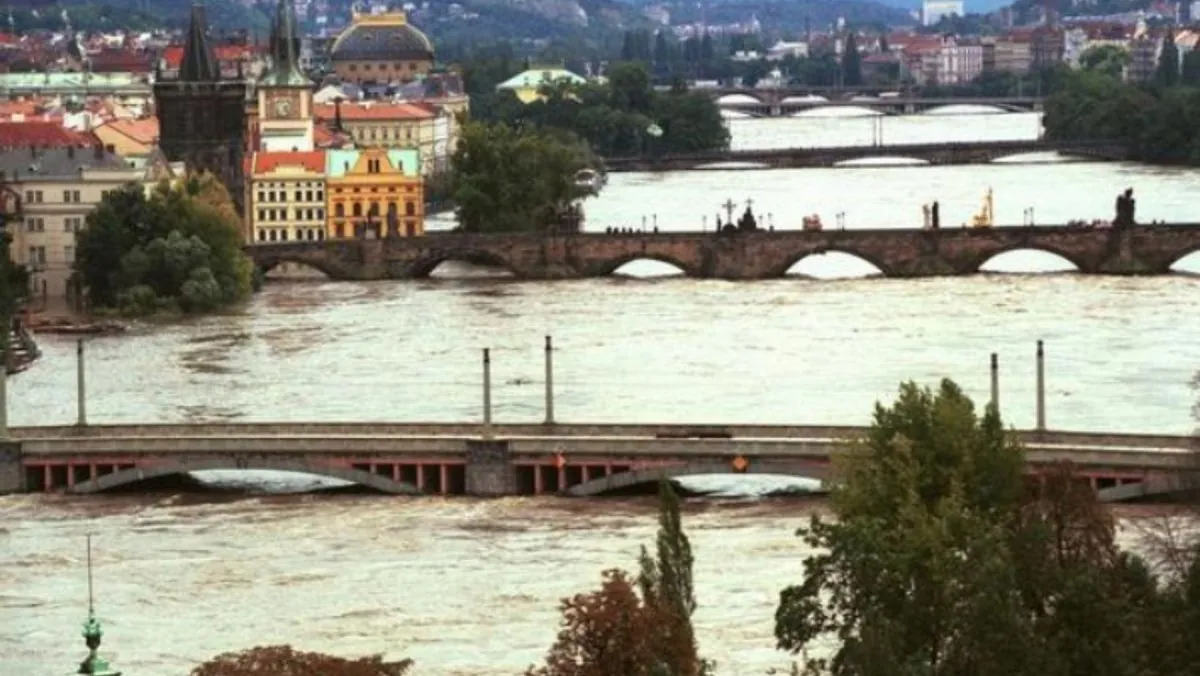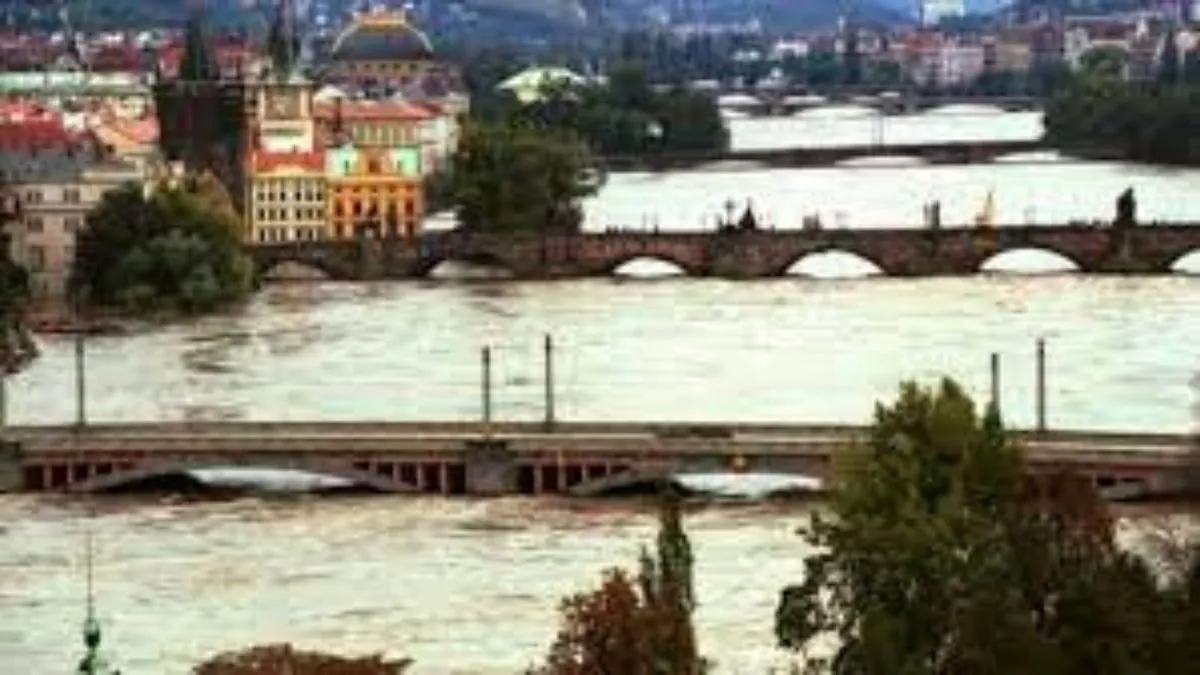Prague Braces for Potential Flooding as Central Europe Faces Extreme Rainfall
Prague implements flood defenses as Czech Republic and neighboring countries prepare for severe rainfall. Authorities take preventive measures, recalling the devastating floods of 2002.

Prague, the capital of the Czech Republic, is implementing flood protection measures as forecasters warn of extreme rainfall across Central Europe. The city, situated on the banks of the Vltava River, is preparing for potential flooding that could rival the catastrophic events of 2002.
Petr Fiala, the Czech Prime Minister, addressed the nation in a televised briefing, stating:
"Data shows we are facing uneasy days. We are taking all the necessary measures to prevent damage to property and health."
The Czech Hydrometeorological Institute has expanded its warning for extreme rainfall to include Prague and other areas of the country. Forecasts predict that some regions may receive more than a third of their annual rainfall within a four-day period ending September 17, 2024.
Prague, with its population of 1.3 million, has invested significantly in flood protection infrastructure since the devastating floods of 2002. These improvements include a system of flood barriers designed to protect the city's historic center, including the iconic 14th-century Charles Bridge, which spans the Vltava River for approximately 31 kilometers within the city limits.
Bohuslav Svoboda, the mayor of Prague, expressed cautious optimism about the city's preparedness:
"We are acting in a preventative mode and we believe that starting anti-flood measures now, we believe the situation of 2002 will not repeat itself."
Water management authorities have begun emptying reservoirs on the Vltava dam cascade, which consists of 15 dams, to create capacity for the expected floodwaters. This measure is part of a comprehensive flood management strategy implemented after the 2002 floods, which forced the evacuation of tens of thousands of people and caused extensive damage to the city's infrastructure, including its metro system with 61 stations across three lines.

The threat of flooding extends beyond the Czech Republic's borders. Parts of southern Germany, Austria, Poland, and Slovakia are also on high alert. In Poland, the city of Wrocław, the country's fourth-largest, has cancelled outdoor cultural events as a precautionary measure. Donald Tusk, the Polish Prime Minister and former President of the European Council, assured that emergency services are prepared for localized flooding.
Slovakia is focusing its efforts on the Morava River, which forms part of its borders with the Czech Republic and Austria before joining the Danube. Tomas Taraba, Slovakia's Environment Minister, announced plans to manage potential overflow by diverting water to unpopulated areas if necessary.
The current situation highlights the interconnectedness of Central European waterways. The affected areas are drained by major rivers including the Elbe (Labe), Europe's second-longest Danube, and the Oder (Odra), which forms part of the Polish-German border. These rivers play crucial roles in the region's geography, economy, and flood management strategies.
As the region braces for the peak of this weather event, authorities continue to monitor the situation closely and implement preventive measures. The coming days will test the effectiveness of the flood protection infrastructure and emergency response systems put in place since the last major flood, demonstrating the importance of long-term planning and investment in climate resilience.


































